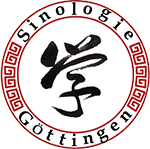
- Diese Veranstaltung hat bereits stattgefunden.
Lecture Viren Murthy, Associate Professor of History (University of Wisconsin-Madison): Conservative Radicalism: Watsuji Tetsuro’s Critique of Civil Society and Its Implications for Chinese Intellectual History
May 20, 2022, 12:00 PM Amsterdam, Berlin, Rome, Stockholm, Vienna
On Campus: KWZ 0.610 (University of Göttingen, Heinrich-Düker-Weg 14, 37073 Göttingen)
On Zoom: For registration, please use this zoom link.
Since the late nineteenth and early twentieth centuries, as the Meiji state quickly modernized, Japanese intellectuals confronted the atomization and alienation associated with new forms of labor in civil society. Unlike in the family, where affective bonds govern human action, in civil society, people ventured into the world as purposive individuals entering into wage-contracts, which forced them into a means-end relationship. While scholars have dealt with attempts to overcome modernity twentieth century Japan, few have focused on the how the ideal of the family served as a trope to reconcile the antagonism between the individual and the community. The Japanese philosopher, Watsuji Tetsuro (1889-1960) critically drew on Hegel’s conception of the family to attack civil society. While his critique is clearly conservative, I argue that his position overlaps with leftist treatments of modern alienation and reveals the contradictions between spheres of the family and civil society. Watsuji develops his position in an essay written in the 1930s on the city, where he translates the civil society (bürgerliche Gesellschaft) as “interest society (rieki shakai)”, a sphere where people pursue personal gain. In response to this, he advocates rekindling to older forms of society, where work and family are not so clearly severed. Towards the end of my presentation, I examine the implications of Watsuji’s critique of urban life for the study of Chinese intellectual history. Specifically, in both contexts, my study suggests that we at times blur the lines between radical and conservative because they often have a similar object of critique, namely capitalism, which they each grasp with varying degrees of success.
Viren Murthy teaches transnational Asian History and researches Chinese and Japanese intellectual history in the Department of History at the University of Wisconsin-Madison.
This lecture is part of the lecture series New Perspectives on Modernity in China.
